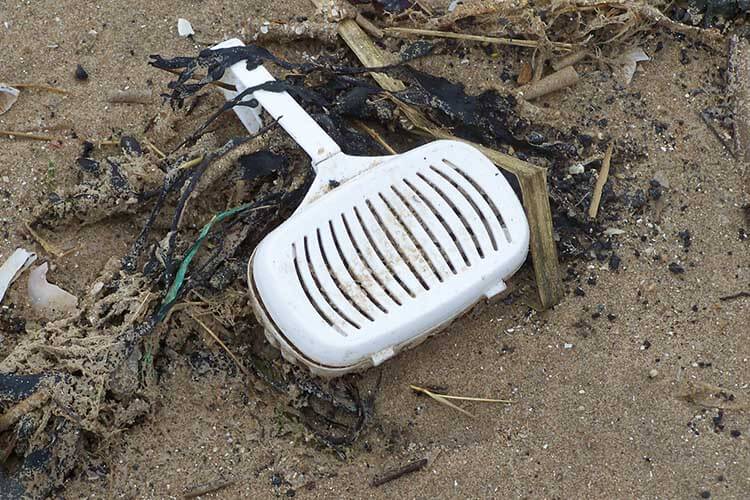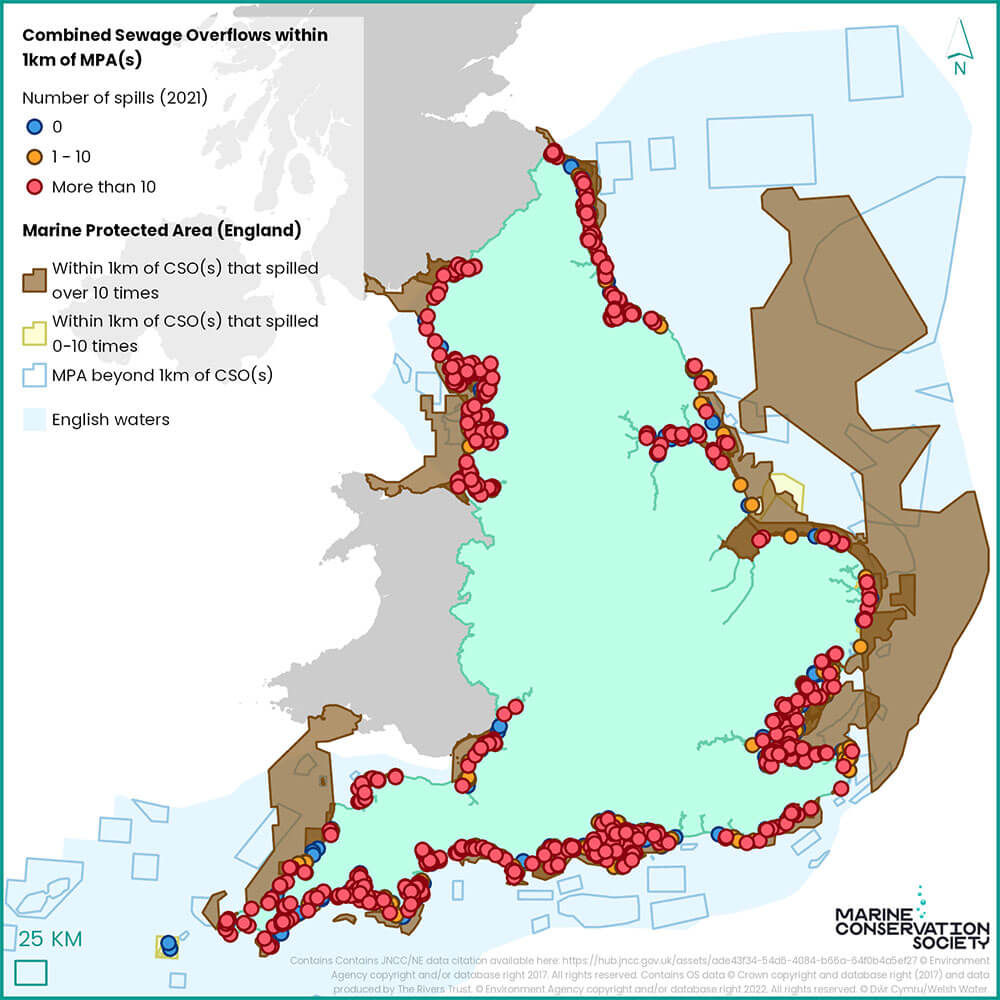
By DIVE Staff
The Marine Conservation Society has announced that it is taking legal action against the UK Government’s Department for Environment, Food and Rural Affairs (DEFRA) over the pumping of untreated sewage into UK waters.
Launched and funded by the Good Law Project, the charity is joining the case as co-claimant together with oyster cultivation and harvesting business Richard Haward’s Oysters, and surfer and activist, Hugo Tagholm.
The legal case is being brought in response to DEFRA’s newly published Storm Overflows Discharge Reduction Plan 2022, which the claimants say does not adequately safeguard the UK’s coastal waters, and which – with some targets set over a timescale of more than 25 years, does not address the sewage problem with sufficient urgency.
Storm overflows were constructed as part of the sewer infrastructure during the latter part of the 19th Century. They were designed to act as safety valves, discharging sewage and rainwater into rivers, lakes, or the sea to protect properties from flooding, and preventing sewage from backing up into streets and homes during heavy storms. Pressure on the system has been steadily growing due to the UK increasing population, and a reduction in permeable surfaces for flood waters to drain into.

There are around 15,000 storm overflows in England, 90 per cent of which discharged at least once duing 2021, with 5 per cent discharging more than 100 times, including around high priority nature sites.
‘Untreated sewage is being pumped into our seas for hundreds of thousands of hours each year; putting people, planet and wildlife at risk,’ sadi Sandy Luk, Marine Conservation Society CEO. ‘We’ve tried tirelessly to influence the UK Government on what needs to be done, but their Plan to address this deluge of pollution entering our seas is still unacceptable. We owe it to our members, supporters and coastal communities to act, which is why we’ve joined as co-claimants on this case. We’re out of options. Our seas deserve better.’
More from MCSUK
MCS has previously participated in a government consultation in March 2022 and met with DEFRA representatives to express concern over its plans. In August 2022, the charity wrote an open letter to DEFRA outlining the ways in which it felt the proposed plans would fail to protect the both the environment and public health from sewage pumped into the sea.
Following the publication of the Storm Overflows Discharge Reduction Plan, MCS said in a statement that it ‘virtually excludes most coastal waters (except for bathing waters) either directly or indirectly, with some types of Marine Protected Areas and shellfish waters totally excluded. 600 storm overflows are not covered at all by the Plan and will continue to – completely legally – be able to dump uncontrolled amounts of sewage directly into English seas and beaches. What’s more, the Plan lacks all urgency – with long-term targets set for 2050, and the earliest, most urgent targets not to be met until 2035.’

Analysis by MCS found that there are at least 1,651 storm overflows within 1km of a Marine Protected Area (MPA) in England, which spilled untreated sewage into the water 41,068 times in 2021, a combined total of 263,654 hours’ worth of spillage over the course of the year.
‘Untreated sewage contains a cocktail of bacteria, viruses, harmful chemicals, and microplastics,’ said Rachel Wyatt, Policy & Advocacy Manager for Clean Seas at the Marine Conservation Society. ‘It’s nearly impossible to remove microplastics and ‘forever chemicals’ once in the environment. Due to their persistence, with every discharge, these pollutants will continue to increase, meaning eventually they will pass – or may have already passed – a threshold of harm.’
According to DEFRA’s latest assessments of the UK’s water supplies, only 19 per cent of estuaries and and 45 per cent of coastal waters are at ‘good’ ecological status, with none meeting good chemical status, and 75 per cent of shellfish waters failing to meet water quality standards.
Adding to the problem of the toxic chemicals and harmful bacteria present in waste water, the 2022 MCS annual Great British Beach Clean reported that sewage related pollution, such as wet wipes and sanitary products, were found on 73 per cent of the beaches surveyed across England.
‘The Marine Conservation Society is at the forefront of tackling the ocean emergency and standing up for coastal communities impacted by climate change and pollution,’ said Emma Dearnaley, Legal Director at the Good Law Project. ‘Good Law Project will work closely with the claimants to put forward the case for more ambitious and urgent measures to reduce sewage discharges by water companies.
‘These sewage spills are threatening human health, biodiverse marine life and the fishing industry. We believe that taking legal action now is vital to help safeguard our coastal waters for generations to come.’


